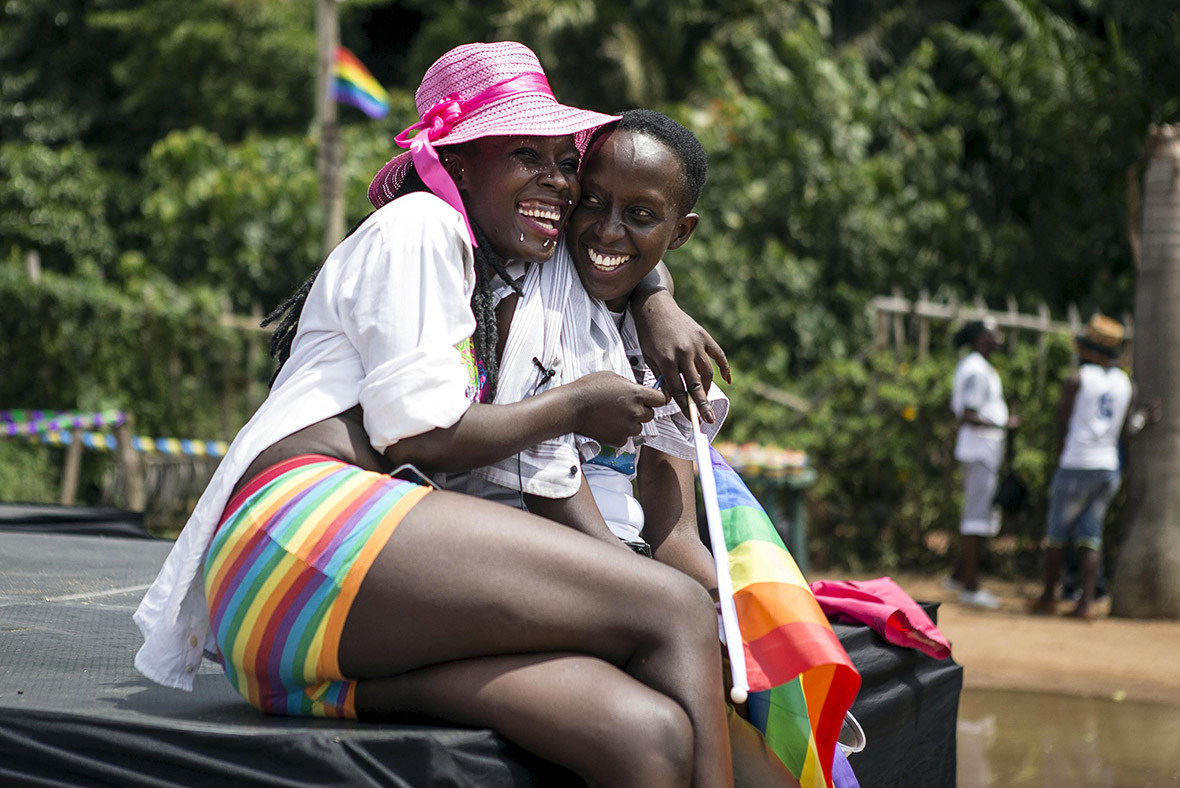Prof. N. Bizimana (PHD) analyses the style, which, if put to good use, will naturally cause mutual satisfaction, joy and happiness.
“For the first time, it is presented in a detailed and in depth manner to sexual health professionals,” Nizimana writes.
Introduction The aim of this article is to present an uncommon sexual technique used, as far as we know, only in Burundi, Rwanda, the Eastern Democratic Republic of Congo, Western Uganda and Western Tanzania (this area will be named Central Africa in the rest of the text) for triggering female orgasms during heterosexual encounters.
For the first time, it is presented in a detailed and in depth manner to sexual health professionals.
This sexual practice termed in Rwanda and Burundi as Kunyaza and in Uganda as kachabali has already been published in two popular books Le Secret de l’amour à l’Africaine (Bizimana, 2008) and Kunyaza.
In this article, we repeat only the matters that in our opinion are essential for sexual health professionals.
The data presented here are essentially based on information collected from 58 women and men during our interviews in Central Africa and from 30 readers of our popular books.
We give only a summary of the results of our research, without going into the details regarding the exact number and the percentage rate of the informants from whom we obtained the data.
How is kunyaza practiced? During the simple practice of kunyaza, the man rhythmically and continuously strikes the glans of the clitoris with the glans of his erect penis, which he takes in his hand or between the index and the middle finger moving in the same motion from top to bottom and vice versa or from left to right and vice versa.
Eventually, he can make circular movements, also working in the same movement clockwise and then counterclockwise. Alternatively, one can strike both the glans and the body of the clitoris in a similar manner as the glans, moving from the root of the body to the bottom of the glans and back again.
Both parts of the clitoris may also be stimulated by using a zigzagging motion from the root of the body to the bottom of the glans and back again.
Initially the striking may be painful because the area is not yet lubricated.
In this case, the woman should moisten it with her saliva.
During the complex practice of kunyaza, the following is performed: Following vaginal lubrication through foreplay, the man introduces his manhood into the well to practice the technique of conventional penile vaginal penetration (PVP), in the course of which he moves his penis backward and forward in the vagina.
After the manhood has become moist enough, he removes it and takes it into his hand or between the index and middle finger, as done during the practice of the simple form of kunyaza, and then he rhythmically and repeatedly strikes the external surfaces of the labia minora with the glans of his manhood.
He works in the same movement from top to bottom and vice versa, from left toright and vice versa or from top to bottom in a zigzagging motion, and back again in a similar manner as with the stimulation of the glans and body of the clitoris.
When there is intumescence and opening of the labiaminora due to the increasing sexual arousal of the woman, he performs similar movements in the area of the internal surfaces of the labia minora and the vestibule, including the external urethral opening.
The next step consists of stimulating, always in the same movement, the clitoris, the vestibule, the labia minora and the vaginal opening.
The man proceeds in a manner similar to that described above, by moving from the beginning of the body of the clitoris to the inferior margin of her opening.
And finally, almost simultaneously he stimulates all the organs of the vulva (body and glans of the clitoris, vestibule, labia minora, vaginal opening) and the perineum, moving from the beginning of the body of the clitoris to the perineal area and vice versa.
STIMULATION
During all stages of external stimulation, the man may change to internal stimulation by loosening his manhood to practice coitus before returning to external stimulation.
He can render the coital thrusts more stimulating by alternating superficial and deep penetrations, actions which are respectively named gucuga and gucumita in Rwanda.
He can also stimulate the walls more directly than with the simple use of the PVP.
To do this, he takes his manhood in the hand or between the index and middle finger, as done during the external stimulation, and makes the body of his manhood perform vertical and horizontal movements from one wall to another and vice versa or circular movements along the vaginal walls, each through a progression from the vaginal opening towards the neck of uterus and back again.
During both internal and external stimulation, the rhythm and the force of the movements are slow and sensitive, and they increase in accordance with the sexual arousal of the woman and the humidification of the areas involved.
Pain to the manhood during perineo-vulval stimulation can be avoided by removing the woman’s pubic hair.
The woman participates in the practice of kunyaza by cooperating with her partner during the choosing of the forms of kunyaza and the intensity of the rhythm to be used and by showing him the zones of her genital area that best respond to the sexual stimulation.
Should the man tire before the end of the sexual encounter, she can take his manhood in her hand and continue the process until he is rested.
If he has difficulties stimulating the vestibule, she can help him by spreading apart the labia minora with her fingers until the whole vestibular area is accessible to the manhood.
To allow him to comfortably stimulate the area between the labium minus and the labium majus, she can also spread them apart with the fingers until the area between them is laid out.
The opened labia are released when it comes to internal stimulation.
In which positions is kunyaza practised? Kunyaza is performed in many different positions.
These positions have in common that they allow the man to, almost without interruption, alternate from the external to the internal stimulation and vice versa.
Two types of positions can be differentiated: the traditional positions and the modern positions.
The traditional positions are the classical positions, which the people have always used in the practice of kunyaza, whereas the modern positions are easy to use for people of contemporary society who are less sportive than their ancestors.
Overall, five groups of positions can be distinguished:
(a) Sitting positions,
(b) Lying positions,
(c) Position from behind,
(d) Standing positions and (e) positions used during pregnancy.
Kunyaza and triggering of female orgasm Kunyaza is believed in Central Africa to be a good technique for triggering female orgasm. It was developed after the people empirically realised that only few women are able to reach orgasm through the use of PVP alone.
According to these people in Central Africa, this African technique has, among others, the following characteristics:
The woman may reach orgasm within 3 to 5 minutes and this can happen before the man has an orgasm.
The external stimulation alone is enough to bring both woman and man to orgasm.
Kunyaza enables women to have multiple orgasms, which is why they prefer it to the PVP.
Many women ask their partners to use it if they are not sexually satisfied by the use of the PVP.
They do not ask it directly. They ask him, for example, whether or not he talks to other men.
This question is an indirect and tactful way of cajoling him into talking with other men to ask them how kunyaza is practised.
The stimulation of the clitoris, which is called rugongo in Rwanda and Burundi, is considered to be indispensable for triggering female orgasm.
Thus, when asked to briefly explain the meaning of kunyaza, Rwandese and Burundians answer that it consists of stroking or striking the rugongo.
Many men observe the increase in diameter and length of this organ during the sexual arousal of the woman when positions are used which expose the vulva to the man.
FLOODS Production and expulsion of large quantities of liquid by the woman into the perineo-vulval region during the practice of kunyaza.
During the practice of kunyaza, the woman generally produces and expels large quantities of liquid into the perineo-vulval region.
This is why this kind of sex is called kunyaza, which literally means to make urinate.
The genital area of the male often also gets wet and sometimes the wetness reaches the umbilical area due to the stroking movements.
The men report that they get warm liquid on their manhood. Though the literal translation of kunyaza seems to suggest that the ejected liquid is urine, for the traditional users of this technique, it is not urine, since in Rwanda urine is termed as inkari, whereas the liquid secreted during kunyaza is termed as amavangigo or ibinyare.
Besides the differing terms used to designate both liquids, they are also described as having differing properties. The liquid expelled during kunyaza is described as colourless to milky, whereas concentrated urine is yellowish or brownish.
It is described as having a thick consistency, whereas that of urine is always aqueous.
Its odour is described as not being particular, whereas urine has the typically strong odour of ammonia.
The quantity of expelled liquid is estimated to be up to one litre and more. However, there are some women who do not respond to the stimulation of kunyaza with liquid production.
They are termed in Rwanda as rwasubutare which means granite splitter, an expression which insinuates that having sexual encounters with this kind of women is as hard as splitting granite.
Contrary to rwasubutare women, there are also those who expel enormous quantities of liquid during this sexual practice from the moment the man penetrates.
Women who are not sexually experienced may initially think that there is something wrong with them.
Men in Central Africa like to have sex with these women, also referred to as kingindobo or shami ryˇıikivu in Rwanda, which respectively means put a bucket under her and branch of Lake Kivu, the Lake Kivu being the largest lake in Rwanda.
They are praised for their strong response to sexual stimulation. Because of large quantities expelled during kunyaza, this type of sex is often characterised by a noise that is evocative of the sound of someone splashing water with his hands.
That is why people in Rwanda use the expression the dog that drinks water to insinuate this particular noise or this EXPERTS DISCUSS Kunyaza seems to be a good technique for triggering female orgasm in the traditional African milieu The following arguments seem to confirm it: The use of kunyaza has a long tradition.
The persons aged 70 years and above that we interviewed in 1986, confirmed that their grandparents also used this technique. This means that it has been used for at least 150 years.
Had it not proven to be beneficial to sexual pleasure, it would not still be in practice today.
Most data collected in our interviews have confirmed that most women reach orgasm when this uncommon sexual technique is applied and that it is the main reason why it is used and why many women ask their partner to use it.
During sex with the kunyaza technique, the man can stimulate almost all genital erogenous zones of the woman.
The clitoris and the distal urethra which are regarded as the focus of female orgasm function and which form a common tissue cluster are stimulated by vertical, horizontal and zigzagging movements of the glans of the manhood.
The two first organs being directly stimulated, the last one indirectly. The internal parts of the clitoris (vestibular bulbS and clitoral crura) are stimulated when the man uses strong movements.
The other zones of the perineo-vulval region,which are also considered to be erogenous, namely the vestibule, the labia minora, the external urethral opening, the vaginal opening and the perineum (Kinsey et al., 1953).
The external urethral sphincter (possible G-spot according to O’Connell et al., 2005), the Skene’s glands and the periurethral glands (G-spot according to some adepts of female ejaculation.
Intravaginal vertical, horizontal and circular movements stimulate more directly the vaginal walls than the PVP does and they directly stimulate the inferior parts of the vestibular bulbs and clitoral crura, the distal urethra, the Skene’s glands, the periurethral glands, the external urethral sphincter and the deep-lying erectile tissues of the perineum.
During both internal and external stimulation, it is theoretically possible to trigger orgasm by individually stimulating each erogenous zone.
If the man performs rapid and strong movements, he can stimulate several erogenous zones simultaneously and, thus, trigger several orgasms whose effects may accumulate resulting in one intense orgasm or appear one after another to allow the woman to experience multiple orgasms.
Can the phenomenon of expelling large quantities of liquid by the woman during the practice of kunyaza be considered as female ejaculation?
It is reported that sex with kunyaza is generally characterised by the production and expulsion of large quantities of liquid by the woman.
Besides the term kunyaza, used to describe this characteristic of this type of sex, and the data collected during our interviews and from the readers of our popular books, further confirmation can be found in some of the limited written information on this African sexual technique.
Tamale (2005) reports, for example, that during a workshop on sexuality a sexual teacher, specialised in the Ugandan traditional practices, told other participants the following:
‘‘I myself was truly ignorant about female ejaculation until I met my current lover. It works better with the Banyankore kachabali technique. If you lover knows what he is doing, you’ll pour rivers and experience multiple orgasms at the same time.’’
Another confirmation is to be found in the report from the 10th International Conference of the Society for Women and AIDS (SWAA) in Africa, held in Kigali from 24 to 28 July 2005, in which kunyaza was translated as wet sex (SWAA, 2005).
The phenomenon of expelling large quantities of liquid during the practice of kunyaza is considered in some written information on this kind of sex as female ejaculation (Tamale, 2005).
In our part II next time, don’t miss reports that estimate the quantity of expelled liquid during the practice of kunyaza to be up to one litre and more, it is most likely that this liquid has several sources.











